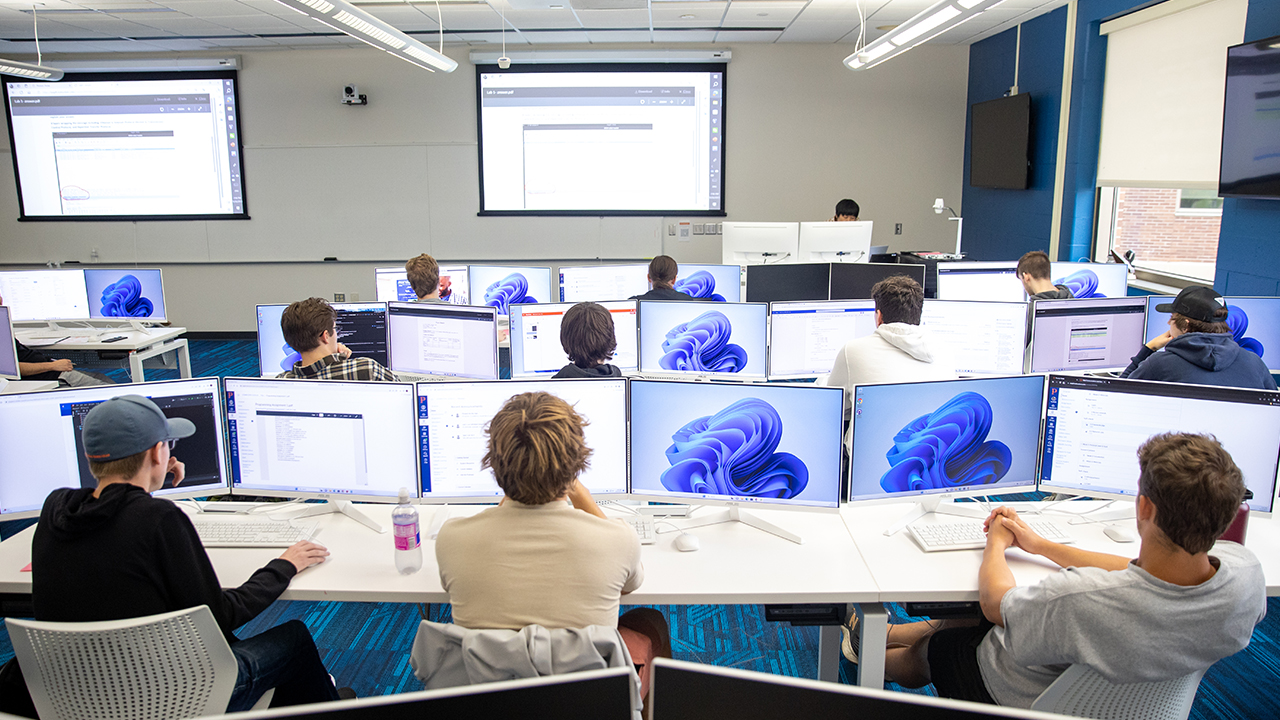The Cybersecurity Club at the University of Wisconsin-Platteville participated in the picoCTF 2024 competition, where its team placed 17th out of 539 undergraduate schools.
“I am proud of our team's achievement and believe it reflects positively on our institution's commitment to excellence in cybersecurity education,” said Dr. Bassam Zahran, assistant professor of computer science and software engineering and club advisor. “This success underscores the value of our Cybersecurity program and the caliber of our students.”
UW-Platteville students who participated in the event included Matt Betanski, Brady Coenen, Tyler Freeman, Parker Stork and Riley Basaran.
“I'm extremely proud of our team. Our school and the club have always had the talent and ability to do great things in cybersecurity,” said Basaran, senior cybersecurity major from Woodstock, Illinois, president of the Cybersecurity Club at UW-Platteville and team captain. “I'm excited to see what they do next year.”
The picoCTF competition, hosted by Carnegie Mellon University, is the largest cybersecurity hacking competition for middle, high school and college students. During the annual event, which runs for two weeks, competitors must reverse-engineer, break, hack, decrypt and think creatively and critically to solve the challenges and capture the digital flags. There are sets of challenges from six domains of cybersecurity including general skills, cryptography, web exploitation, forensics, reverse engineering and binary exploitation.
To prepare for the competition, the team had some deliberate practice. Covering cybersecurity concepts and supplemental learning during main club meetings, the team met for competition-specific practice a couple of weeks leading up to competition. Team members mostly worked on the competition on their own time, with three specific dates that the whole team met to compete together. In the last three days of competition, the team more than doubled their points in order to move into the top 20 of the competition.

